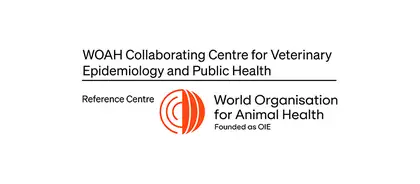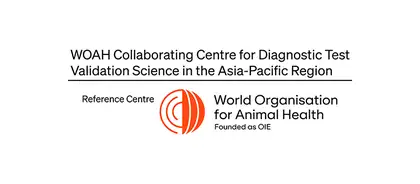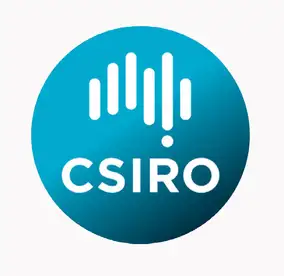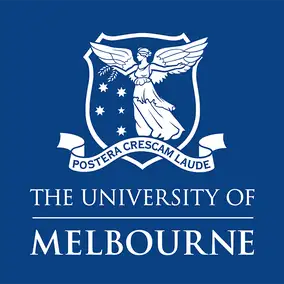What we do
Established in 1986, EpiCentre has developed into an international focus group for veterinary epidemiology and public health. It is the largest veterinary epidemiology training and research centre in Australasia and is considered one of the leading groups in the world.
We have expertise in:
- the understanding and control of disease in animal populations
- the transmission of disease from animals to humans
- hazards in food of animal origin.
We're renowned for our commitment to long-term research goals and our innovative use of epidemiological techniques in research and problem-solving.
WOAH Collaborating Centres

Veterinary Epidemiology and Public Health
EpiCentre is the lead agency for this collaborating centre. Partnering with mEpiLab and China Animal Health and Epidemiology, we provide world-leading expertise in our specified fields for the Asia-Pacific region. Areas of expertise include veterinary epidemiology, veterinary public health, biosecurity and molecular epidemiology. We're pioneers in One Health research and training.

Diagnostic Test Validation Science in the Asia-Pacific Region
The Australian Centre for Disease Preparedness is the lead agency for this collaborating centre. We became a member in 2017, along with the Faculty of Veterinary and Agricultural Sciences at Melbourne University. We each bring a unique skill set in veterinary epidemiology, development and validation of diagnostic tests for emerging and transboundary animal diseases, and endemic animal diseases.
Our research
Fields of research at the EpiCentre range from diseases of New Zealand livestock to the development of more effective animal health care delivery systems for New Zealand livestock producers, as well as for subsistence farmers in Asia and Africa.
Examples include Johne’s disease in ruminant species, mastitis and lameness in dairy cattle, respiratory disease in pigs and sheep, and tuberculosis in farmed animals and wildlife, to diseases of global importance (bovine spongiform encephalopathy, foot-and-mouth disease, avian influenza).
The EpiCentre, in liaison with partner institutes, is engaged in extensive research and training in public health and food safety, for example:
- leptospirosis and cryptosporidiosis
- campylobacteriosis, salmonellosis and E.coli 0157.
Publications
Theses and dissertations
A list of recent dissertations and theses from EpiCentre students.
Study with us
We offer the only veterinary epidemiology speciality qualification in Australasia. The Master of Veterinary Studies in Epidemiology is our flagship qualification. It has been gained by postgraduate students from over 30 countries worldwide since 1995.
Study with us and you will be taught by staff from the only WOAH Collaborating Centre for Epidemiology and Public Health.
If you would like to discuss possible postgraduate studies with us, contact Dr Emilie Vallee at e.vallee@massey.ac.nz.
Veterinary Epidemiology – Postgraduate Diploma in Veterinary Science
Study a Postgraduate Diploma in Veterinary Science (Veterinary Epidemiology) at Massey University, home to the EpiCentre - the largest veterinary epidemiology training and research centre in Australasia.
Master of Veterinary Studies – MVS
Progress your professional development by gaining expertise in a specific area of veterinary science.
Short courses for professional development
We offer the following short course.
Visualising Animal Health Data with QGIS
This course covers how to generate static and interactive maps of animal or public health data using the open-source software “QGIS”.
If you have a general enquiry or would like to discuss the development of a custom short course for your organisation, contact Dr Chris Compton.

Dr Chris Compton
Who we are
Our team has vast international experience in academic research and its practical implications for government and industry.

Professor Naomi Cogger

Dr Chris Compton

Dr Ahmed Fayaz




Dr Emilie Vallee

Simon Verschaffelt

Collaborators and partners
EpiCentre and mEpiLab
In 2008, a second Massey University epidemiology group, The Molecular EpiLab (mEpiLab), was founded as an off-spring of the EpiCentre. The two form a close partnership as they provide world-class excellence in research and development of population health in animals and humans.
WOAH Collaborating Centre partners

Australian Centre for Disease Preparedness (ACDP)
ACDP helps protect Australia’s multi-billion dollar livestock and aquaculture industries, and the general public, from emerging infectious disease threats. It is a high-containment facility designed to allow scientific research into the most dangerous infectious agents in the world.

China Animal Health and Epidemiology Centre (CAHEC)
CAHEC is a pioneer of One Health research and training in China.

Molecular Epidemiology and Public Health Laboratory (mEpiLab)
mEpiLab is within the Hopkirk Research Institute on Massey University's Manawatū (Palmerston North) campus. Their research has improved our understanding of the epidemiology, evolution and control of infectious disease. It has also contributed to major reductions in the rates of foodborne disease in New Zealand.

Faculty of Veterinary and Agricultural Sciences (FVAS)
FVAS, The University of Melbourne, has an international reputation for excellence in research and its links with industry and stakeholders. Their research provides valuable input into solving global issues, such as food security for a rapidly growing population, animal health and well-being, and climate change.
International collaborators
- Atlantic Veterinary College Epidemiology and Biostatistics Group, University of Prince Edward Island (Canada)
- Centre of Excellence for Biosecurity Risk Analysis (CEBRA), The University of Melbourne (Australia)
- Department of Agriculture, Fisheries and Forestry (Australia)
- Department of Population Medicine, Ontario Veterinary College, University of Guelph (Canada)
- Dr Gareth Enticott, School of Geography and Planning, Cardiff University (Wales)
- National Institute of Agricultural Technology (Argentina)
- Professor Emeritus Richard Whittington, Farm Animal Health, The University of Sydney (Australia)
- Quarantine Inspection Agency (QIA), Animal and Plant Quarantine Agency (Korea)
- Royal Veterinary College, University of London (England)
New Zealand collaborators
- Centre for Public Health Research (CPHR) (Massey University)
- DairyNZ
- Kiwifruit Vine Health (KVH)
- Know Lepto, Leptospirosis New Zealand
- Ministry for Primary Industries (MPI), Manatū Ahu Matua
- One Health Aotearoa (Otago University)
- OSPRI (Operational Solutions for Primary Industries)
- Working Dog Centre (Massey University)
Contact us
Academic contact: n.cogger@massey.ac.nz
Administrative contact: s.e.verschaffelt@massey.ac.nz
EpiCentre
- epicentre@massey.ac.nz
- Phone
- Fax
- Location
Physical address
Wool Building
University Avenue
Massey University
Palmerston North 4474
New ZealandPostal address
EpiCentre PN623
Massey University
Private Bag 11-222
Palmerston North 4442
New Zealand
Visiting us
SoVS building (Wildbase), University Avenue, Massey University
